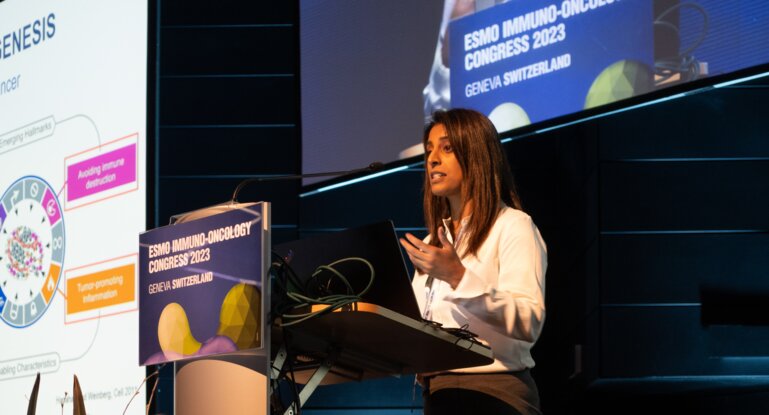Despite recent progress, lung cancer remains deadly and difficult to treat — and preventable, to a much greater extent with the right actions to improve the quality of the air we breathe
As the thoracic oncology community convenes around the latest research data at the European Lung Cancer Congress (ELCC) 2024 in Prague, ESMO remains active on several fronts to advocate for science-based prevention – the most powerful, but underutilised lever at our disposal to reduce future casualties from cancer’s biggest killer. In the 18 months since scientists presented on the international stage their discovery of the mechanisms by which air pollution can trigger lung cancer in people who have never smoked (Ann. Oncol. 2022, 33(S7):S1413), evidence has been mounting that it may also increase risk for other tumour types (Ann. Oncol. 2023, 34(S2):S278). Yet political action to limit this avoidable threat has so far lacked the necessary sense of urgency in a context where environmental carcinogens, including air pollution but also cigarette smoke and others, are thought to be responsible for about one in 10 new cancer cases and as many cancer deaths in Europe (European Commission, 2023).
At EU level, during the revision of the EU Ambient Air Quality Directives, ESMO had advocated for aligning the European annual limit value for fine particulate matter (PM2.5) with current World Health Organization (WHO) guidelines: namely, to introduce a 5 µg/m3 cap on PM2.5 in the air that is currently five times higher. The European Commission estimates that 97% of Europe’s urban population lives in areas that exceed these WHO-recommended levels.
While ESMO’s recommendations were supported by the European Parliament, unfortunately the final agreement recently reached by the co-legislators falls short of this goal by setting the limit at 10 µg/m3 and introduces the possibility for governments to postpone compliance beyond the 2030 objective, under specific circumstances.
Knowing what we know today – not only about the dangers of environmental pollutants, but also about the unsustainability of current trends in cancer incidence for Europe’s public health systems – we need stronger political will to help European citizens make their living environments safer in the short term. The ESMO Manifesto for a Healthier Europe, released ahead of the impending elections to the European Parliament, therefore calls for swift action in the next legislature to revise the EU Tobacco Products Directive, including to reflect emerging, yet to be fully understood risks from e-cigarettes. New legislation is equally desired to mitigate other occupational and environmental health hazards, such as exposure to endocrine disruptors or benzene.
Where the regulatory perimeter ends and individual responsibility begins, there is also plenty of room for educational and supportive measures to empower citizens to adopt healthy lifestyles. This is where we, as oncology professionals, need to be much more aware of the part we can play as trusted sources of information and as role models for cancer preventive behaviours. A dedicated session at the upcoming ELCC on lung cancer screening, vaping and smoking cessation will allow participants to explore the current body of evidence in these areas and take impulses for action back home to their colleagues and national health policymakers.






